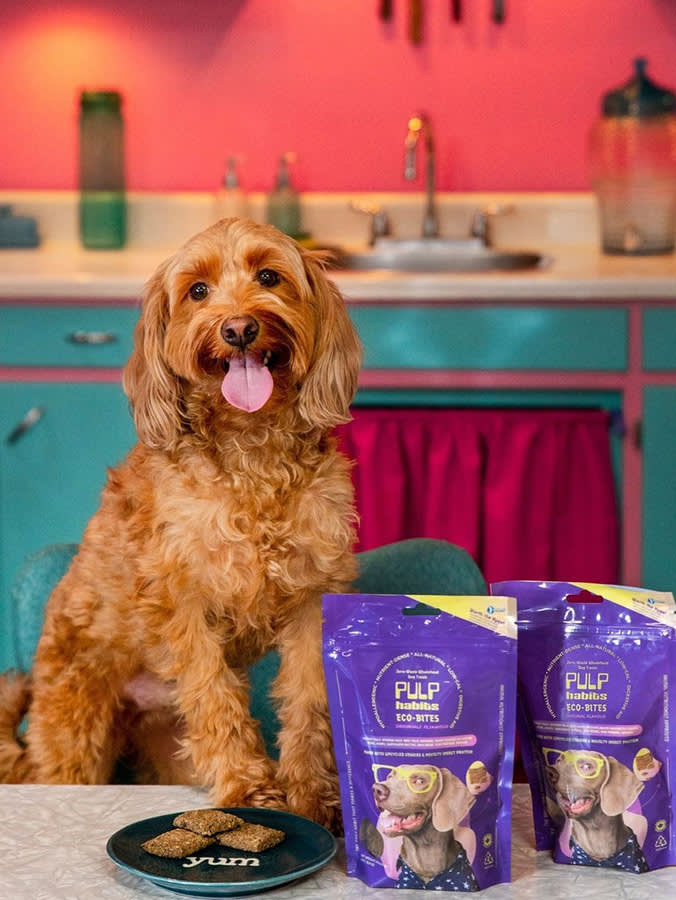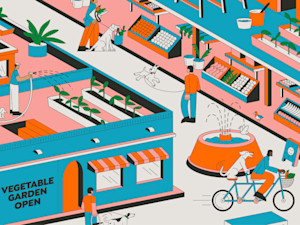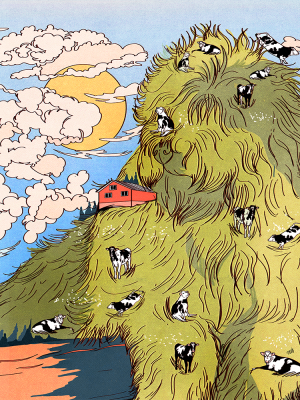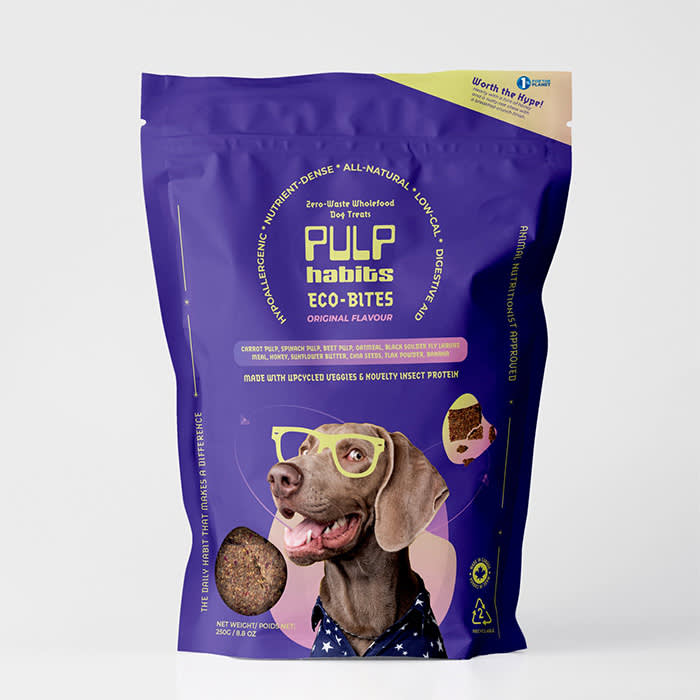Score Nutritious Treats For Your Environmentalist Pup From Pulp Habits
Eco Bites has upcycled vegetable pulp, sustainable insect protein, and is packed with vitamins. Your vet is already thrilled.
When pup parents go on the hunt for dog treats, we want them to at least be enticing enough that they’ll like them. But there’s also that whole “good for the environment” thing; we want the treats we’re buying to be as sustainable as they are crave-worthy (and also not full of crap). If you’re looking for a snack that is as good for the planet as it is for the dogs in your life, Eco Bitesopens in new tab from Pulp Habits, a Toronto-based whole-food treats brand, might have to be your next purchase.
A Solid Low-Waste Option
Pulp Habits Eco Bites are made with upcycled vegetable pulp and novelty sustainable insect protein for a low-waste, chewy snack packed with vitamins, minerals, fiber and antioxidants. Ninety percent of Pulp Habits’s ingredients are sourced locally in Toronto and don’t contain any of the top canine allergens commonly used in pet foods. According to the brand’s Instagramopens in new tab, these hearty squares are totally edible for humans, too.
Founded in January 2023, Pulp Habits is on a mission to decrease the amount of nutritious edible food that gets needlessly tossed in the trash. The United Nations reportsopens in new tab over 1.3 billion tons of edible food is wasted globally each year, and in Canada specifically, produce accounts foropens in new tab 45 percent of food waste. That’s a lot of fruit and veg! Pulp Habits partners with local cold-pressed juice companies to upcycle beet, carrot, and spinach pulp, so those healthy and delicious ingredients can be made into dog treats instead of going to a landfill.
The Environmental Pros of Upcycled Food
As concerns about climate change play an increasingly decisive role in buyer behavior, food retailers have begun to prioritize less wasteful and resource-intensive ways to make their products. The upcycled food economy has been a big part of that movement. Whole Foods even listed “Pulp With Purpose”opens in new tab as number two in their top 10 food trends for 2023.
How much do you spend on your pet per year?
To clarify the terminology for use in policy and research, a team of experts from universities, government, and nonprofit conservation organizations convened a task force to officially define the term upcycled foodopens in new tab.
They specify: “Upcycled foods use ingredients that otherwise would not have gone to human consumption, are procured and produced using verifiable supply chains, and have a positive impact on the environment.” The food we waste is responsible for roughly eight percent of global greenhouse gas emissions, which is why reducing food waste is among our most effective solutions to climate change according to Project Drawdownopens in new tab. One way you can take part in that positive impact? Look for products that use upcycled ingredients when shopping for your pet.
What Makes Pulp Habits Different
The other ingredient that sets Pulp Habits Eco Bites apart is black soldier fly larvae — a nutrient-dense insect protein that serves as a sustainable alternative to meat, poultry, or fish. It contains 10 essential amino acids, calcium, and phosphorous, giving these treats an extra-healthy boost.
Cutting down our reliance on animal protein is crucial in reducing greenhouse gas emissions, soil erosion, water pollution, and deforestation; and we know that pet diets contribute considerablyopens in new tab to our total meat consumption. While insect protein hasn’t totally caught on in mainstream human food, pups are more than happy to chomp on bug protein if it’s baked into something yummy. Why not reduce your household’s ecological footprint with a meat-free treat?












